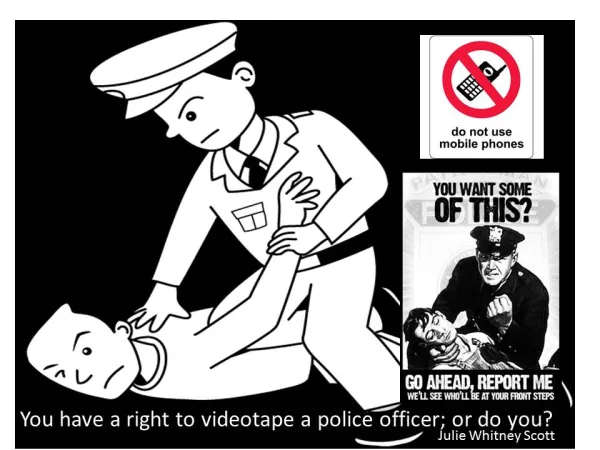Once upon a time if you were stopped by the police, and for whatever reason, found yourself being the victim of police brutality, even with witnesses, you would lose in a court of law based on the “word” of the police officer(s) involved.
If the police officer, after he shot a “suspect,” called in to the station to report “Man down, man shot, he took my Taser,” it would be assumed by the dispatcher that the officer needed back-up and shot the “suspect,” eight times, in self-defense. The news and media reports would tell the public that the “suspect” died as a result of the police officer using “necessary force” to protect himself. Although many of us who heard the police explanation and the news reports didn’t believe we were getting the truth, there wasn’t much we could do or say about it and eventually, like all of the other times, the story would fade away.
Some police departments are wearing “Body Cams” and have video recorders in their vehicles to give us a view of what they are doing, and it works, if they stay within the range of the recorder. However, the public is still getting the police version of the incident. Thanks to the many people using cell phones, the public no longer has to depend on the word of the police or witnesses at the scene of the crime, excuse me, I mean “incident,” now we can go to You Tube and see for ourselves.
Although there are some police departments that are fighting to take away the rights of U.S. citizens to videotape them as they perform their public duties, some of them, like the Boston Police Department in 2007, have been instructed to not arrest citizens that tape them. In May of 2014 a First Circuit Court ruling upheld the 2007 ruling that citizens “have a constitutionally protected right to videotape police carrying out their duties in public,” and as a result more major police departments have been given instructions to not arrest citizens for videotaping their arrests if the citizen is not interfering with the police performing their duties.
However, if you decide to videotape your local police officer(s) “in the line of duty” you must be aware that you may be arrested anyway by an angry, hostile policeman who doesn’t care about his orders or your rights at the time he is violating a “suspects’” rights. This of course could cause you legal fees and the loss of your video device so it is important to know the laws that pertain to this issue because you never know when you may find yourself wanting to tape and then post to social media a video of the police in “action.”
Don’t be afraid to videotape a police encounter that you feel is a violation of someone’s rights, is police brutality or might be helpful for either side if needed in court. Just know the laws in order to protect yourself.



